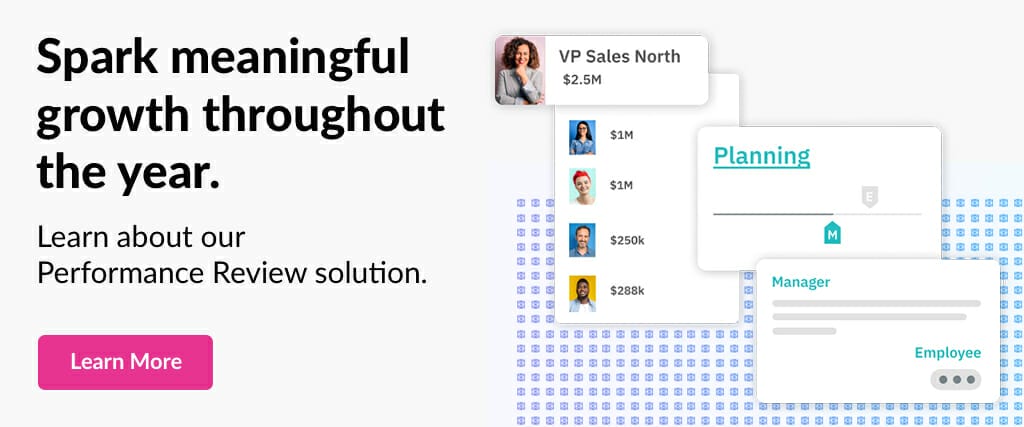Top Banking Banking and Financial Services
Technical Skill in 2025

In Banking and Finance, technical skills play a pivotal role in driving organizational success and ensuring effective management of financial resources. These skills encompass a diverse range of competencies and attributes crucial for navigating the complexities of the financial landscape. We have meticulously curated a comprehensive list of essential technical skills highly coveted in the banking and finance sector. This updated compilation includes competencies such as Financial Analysis, Risk Management, Regulatory Compliance, Data Analysis, Blockchain Technology, Credit Analysis, Digital Banking, Financial Modeling, and Investment Strategies. For each skill, we provide an in-depth description and a spectrum of sample performance review comments, graded on a scale from 1 (Below Expectations) to 5 (Truly Outstanding). This structured approach offers a nuanced understanding of how these skills can be demonstrated at various levels.
Below is a valuable resource table tailored to empower leaders and managers in enhancing their technical capabilities. It also is an indispensable tool for evaluating and fostering these critical skills within teams. It’s crucial to recognize that while these examples provide a foundation, effective performance comments should be customized to each individual, aligning with their unique performance objectives and contributions to the organization’s success. We invite you to check out our comprehensive library of pre-built skills, competencies and job profiles for the banking and financial services industry.
| Skill Name | Skill Description | Below Expectations (1) | Meets Expectations (2) | Exceeds Expectations (3) | Greatly Exceeds Expectations (4) | Truly Outstanding (5) |
|---|---|---|---|---|---|---|
| Financial Analysis | Ability to interpret financial data to make business decisions. | Struggles with basic financial analysis. | Accurately conducts standard financial analysis. | Provides insightful financial analysis. | Leads in complex financial analysis projects. | Pioneers advanced analytical methodologies. |
| Risk Management | Identifying and mitigating financial risks. | Lacks consistency in risk identification. | Effectively identifies and manages risks. | Proactively identifies and mitigates risks. | Implements innovative risk management strategies. | Renowned for exceptional risk management skills. |
| Regulatory Compliance | Knowledge of and adherence to financial regulations. | Often overlooks regulatory requirements. | Consistently complies with regulations. | Goes beyond compliance, ensuring best practices. | Sets standards in regulatory adherence. | A recognized leader in regulatory excellence. |
| Data Analysis | Extracting insights from data to inform business decisions. | Struggles with basic data analysis. | Competently analyzes data sets. | Extracts significant insights from data. | Leads in strategic data-driven decision-making. | Revolutionizes data analysis processes. |
| Blockchain Technology | Understanding and application of blockchain in financial services. | Limited understanding of blockchain technology. | Adequately applies blockchain concepts. | Effectively implements blockchain solutions. | Innovates with blockchain technology. | A global thought leader in blockchain applications. |
| Credit Analysis | Assessing the creditworthiness of potential borrowers. | Inconsistent in credit analysis. | Reliably assesses creditworthiness. | Excellently predicts credit risks. | Expert in complex credit analysis. | Sets benchmark in credit analysis precision. |
| Digital Banking | Expertise in digital banking platforms and technology. | Struggles with digital banking tools. | Efficiently uses digital banking platforms. | Leads in digital banking initiatives. | Trailblazer in digital banking innovation. | A global leader in digital banking transformation. |
| Financial Modeling | Creation of abstract representations of financial situations. | Has difficulty in building basic models. | Constructs accurate financial models. | Develops complex and insightful models. | Pioneers in advanced financial modeling. | A renowned expert in financial modeling. |
| Investment Strategies | Developing and applying strategies for investment. | Lacks effective investment strategies. | Effectively manages standard investments. | Innovates in investment approach. | Sets trends in investment strategies. | Recognized globally for investment expertise. |
The information provided offers a comprehensive overview of banking and financial services technical skills, detailed descriptions, and varied performance review comments catering to a broad spectrum of professional competencies. We invite you to visit our additional pages for further insights and to explore a broader range of skills, including technical, leadership and soft abilities. Whether you want to enhance your team’s skills or develop your own, these additional resources are invaluable tools for continuous professional growth and excellence.
The top skills retail banking, insurance, and actuarial employers want
Retail banking, insurance, and actuarial employers seek candidates with a powerful blend of banking and technical banking skills. In an industry driven by financial analysis, risk management, and data analysis, professionals must also excel in communication skills and customer service to deliver exceptional banking experiences. Mastery of digital banking platforms and blockchain technology showcases technical skills for banking roles, while strong organization and time management help streamline workflows in fast-paced environments.
According to industry data, 60% of banking customers plan to increase digital interactions by 2026, making digital banking proficiency a key banking technical skill. Meanwhile, understanding regulatory compliance and credit analysis remains central to risk mitigation and strategic decision-making. Professionals who can articulate what is needed to work at a bank—such as KYC procedures and financial modeling techniques—stand out during recruitment, demonstrating a robust foundation for success in any list of banking jobs.
1. Communication skills
Effective communication underpins success in retail banking—whether you’re breaking down loan products or guiding clients through investment choices. By clearly outlining account details or policy provisions—skills every bank teller must master—you build trust and empower customers to make informed decisions. Internally, strong communication supports teamwork and leadership, allowing actuarial analysts and financial advisors to present complex models and investment strategies in accessible language.
Daily tasks—like customer inquiries, cross-selling financial products, and interdepartmental collaboration—require professionals to use technical skills for banking resume highlights, such as crafting concise reports and conducting client presentations—mastering communication skills positions candidates at the top of any list of banking jobs requirements.
2. Problem solving
Proactive problem-solving fuels ongoing enhancements in banking workflows and insurance underwriting. It pinpoints approval delays or weaknesses in risk models to demonstrate the exacting technical expertise essential in finance. A teller might flag unusual transactions, while an actuary refines predictive models, illustrating a list of banking jobs where analytical thinking is prized.
By applying root-cause analysis, running scenario simulations, and visualizing data, candidates deliver budget-friendly solutions—no wonder problem-solving ranks among the most sought-after skills in banking.
3. Customer service
Exceptional customer service is a cornerstone for banking success. Bank tellers, relationship managers, and insurance representatives must combine empathy with product knowledge to resolve issues and anticipate customer needs. Embedding technical skills for banking resume pages—like familiarity with CRM systems—enhances service delivery and drives satisfaction.
By proactively notifying customers about overdraft protection or upcoming policy renewals, you blend outstanding customer service with core banking expertise—elevating NPS and cultivating deep loyalty.
4. Emotional intelligence
Emotional intelligence enables professionals to manage stress, navigate difficult conversations, and build rapport. High-EQ individuals excel in conflict resolution and maintain composure during market instability, showcasing why emotional intelligence is listed among key skills for banking roles.
High-EQ teams bridge gaps between risk managers, compliance officers, and data analysts by tuning into each other’s viewpoints—boosting cohesion and performance across banking operations.
5. Numeracy skills
Mastering numeracy—whether computing interest schedules, assessing loss ratios, or building financial models—is indispensable. From corporate treasury roles to retail credit analysis, advanced mathematical prowess underpins every banking job.
Actuaries use statistical methods to forecast liabilities, while bankers use spreadsheets to build scenario models. Demonstrating numeracy skills in banking resume bullet points—such as proficiency with Excel macros—reinforces a candidate’s credibility.
6. Teamwork
Teamwork brings together diverse expertise—front-line bank tellers, credit analysts, compliance teams, and actuaries—to deliver seamless financial solutions. Cross-functional teams accelerate digital banking projects and underwriting workflows using collaboration platforms and agile frameworks.
Highlighting teamwork in banking skills libraries and resumes shows employers you can work effectively across departments. This bank skill remains indispensable for successful project launches and ongoing operations.
7. Organization and time management
During peak times like quarterly closings or insurance renewals, strong organization and time management keep client meetings, regulatory submissions, and model checks on track without sacrificing precision.
Task-tracking apps and Kanban boards support banking technical skills by keeping deadlines visible. Showcasing these abilities in a list of banking job requirements boosts a candidate’s appeal in competitive hiring processes.
8. Leadership and team management
Successful leaders manage teams through strategic projects—digital transformations, market-driven product launches, or complex regulatory audits—ensuring alignment and execution. Leaders also mentor junior staff on credit analysis and regulatory compliance, providing a pipeline of skilled professionals.
Featuring leadership experiences on technical skills for a banking resume—such as directing a blockchain integration project—demonstrates your capacity to drive innovation and maintain operational excellence.
Other Performance Review Comment Examples
- Construction Technical Skills Performance Review Comment Examples
- Customer Service Technical Skills Performance Review Comment Examples
- Energy Technical Skills Performance Review Comment Examples
- Hardware Technical Skills Performance Review Comment Examples
- Healthcare Technical Skills Performance Review Comment Examples
- Hospitality Technical Skills Performance Review Comment Examples
- Information Technology Technical Skills Performance Review Comment Examples
- Insurance Technical Skills Performance Review Comment Examples
- Leadership and Management Skills Performance Review Comment Examples
- Media and Publishing Technical Skills Performance Review Comment Examples
- Pharmaceutical Technical Skill Performance Review Comment Examples
- Professional Consulting Skills Performance Review Comment Examples
- Real Estate Technical Skills Performance Review Comment Examples
- Retail Technical Skills Performance Review Comment Examples
- Soft Skills Performance Review Comment Examples
- Supply Chain Technical Skills Performance Review Comment Examples
- Telecommunication Technical Skills Performance Review Comment Examples
FAQ’s
1. What skills do you need to be a banker?
To thrive in banking, you need a combination of technical and interpersonal skills:
Technical skills in banking: Skilled in financial statement analysis, risk management, compliance, data interpretation, economic modeling, credit assessment, and digital banking.
Soft skills: clear communication, problem solving, customer service, emotional intelligence, teamwork, organization, time management, leadership.
Digital fluency: proficiency with banking platforms, CRM systems, Excel (including macros), and emerging technologies like blockchain.
Detail orientation: accuracy in KYC/AML procedures, loan documentation, and regulatory filings.
Tip: When crafting your resume, highlight both “technical skills for banking resume” sections (e.g., “Advanced Excel modeling,” “Risk assessment tools”) and soft-skill bullet points (e.g., “Led team through digital transformation,” “Improved NPS by 15% through proactive outreach”).
2. Which skill is best for banking?
While all the above are essential, communication skills are often the top differentiator. Clear, empathetic dialogue helps bankers explain complex products, resolve issues quickly, and build lasting trust—directly impacting customer satisfaction and loyalty. Strong communication also boosts cross-functional collaboration, making translating data insights into strategic decisions more straightforward.
3. What are the 7 Ps of banking?
Financial institutions tailor the traditional marketing mix into seven distinct components designed for their services:
Product – The range of financial services (e.g., checking accounts, loans, wealth management).
Price – Interest rates, fees, and pricing tiers.
Place – Distribution channels, including branches, ATMs, and digital platforms.
Promotion – Advertising, direct marketing, and PR campaigns.
People – Front-line staff, relationship managers, and support teams.
Process – Service delivery efficiency and security (e.g., loan approvals, digital onboarding).
Physical Evidence – Tangible cues like branded branches, online interface design, and documentation quality.
4. What is a skill to list on a resume for banking?
When listing skills on your banking resume, aim for a balance of technical competencies and soft skills, for example:
Technical: “Financial modeling (DCF, LBO), SQL for data querying, blockchain applications in finance.”
Regulatory: “Expertise in Basel III compliance, SOX controls, KYC/AML procedures.”
Analytical: “Advanced Excel (macros, pivot tables), Python for data analysis.”
Interpersonal: “Client relationship management, conflict resolution, cross-functional team leadership.”
Certifications: “CFA Level II candidate, Certified Anti-Money Laundering Specialist (CAMS).”
See a preview of TalentGuard’s platform
Unlock New Heights in Employee Development
Unlock new heights in employee development with a unique approach that blends career aspirations with performance objectives. The Importance of Integration In traditional models, career growth and performance management often exist in silos. TalentGuard’s innovative strategy bridges this gap, ensuring an employee’s career path and daily performance goals are in sync. This alignment is crucial […]
The New Performance Appraisal
I wrote a blog post several years ago entitled, Dead Man Walking: The Annual Performance Review, jumping with both feet firmly planted on the growing bandwagon of CEOs and senior HR leaders predicating the end of the ineffective and universally despised annual performance review. Many have proposed throwing reviews out altogether. I’m not on that […]
The Power of Skill-Based Learning
The power of skill-based learning in corporate America is paramount. Businesses prioritizing employee development are better equipped to adapt to changes, boost productivity, and maintain a competitive edge. One of the most effective strategies for achieving this is through skill-based learning. Skill-based learning focuses on enhancing specific competencies, whether technical or soft skills, to improve […]




